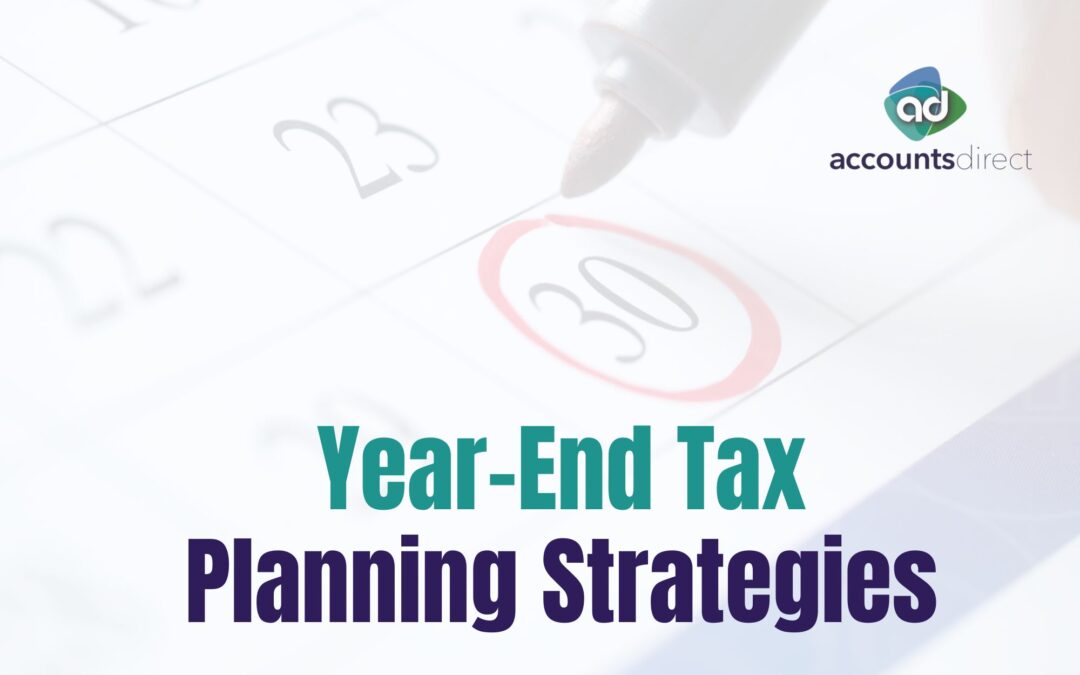Tax season can be daunting for many, but with foresight and strategic planning, you can maximise your tax savings and minimise your liabilities. As the end of the fiscal year approaches, taking proactive steps to review your finances and make informed decisions can be game-changing. Here are some essential year-end tax planning strategies that can benefit individuals and businesses alike.
Assess Your Income and Expenditures
The foundation of any effective tax strategy begins with understanding your current financial situation. Review your income streams and expenditures:
Estimate your annual income and compare it against tax brackets to determine where you stand.
Consider if there are ways to defer additional income to the next year if it might push you into a higher tax bracket this year.
Review deductible expenses and ensure you’ve recorded and claimed everything.
Take Advantage of Tax-Deferred Accounts
Tax-deferred accounts, such as pensions or Individual Savings Accounts (ISAs), offer a shelter from immediate taxation. By contributing to these accounts, you can reduce your taxable income for the current year:
Max out contributions to retirement accounts.
Consider opening or topping up an ISA, which allows your savings or investments to grow tax-free.
Harvest Your Investment Losses
The principle of ‘tax loss harvesting’ involves selling off underperforming investments to offset gains:
Analyse your investment portfolio. Identify any stocks, bonds, or other assets that have underperformed.
By selling these, you can offset capital gains from other investments, reducing your capital gains tax liability.
Consider Gift Allowances
The UK allows individuals to give away a certain amount each tax year without incurring Inheritance Tax. It’s a method to gradually pass on your estate and reduce its eventual tax liability:
Make use of your annual gift allowance.
Consider larger gifts, which might be exempt from Inheritance Tax if you live for seven years after making the gift.
Optimise Deductions with Charitable Donations
Year-end is a popular time for charitable giving, not only because of the festive spirit but also due to the associated tax relief:
Donate to registered charities to claim back on tax.
Remember to keep a record of all charitable contributions, including monetary donations, physical goods, or even volunteered services.
Review Your Business Structure
For business owners, the structure of your business – sole trader, partnership, limited company – can significantly impact your tax liabilities:
Reassess your current business structure. Would a different format be more tax-efficient?
Discuss with an accountant the potential benefits and implications of changing your business structure.
Purchase Business Essentials
If you foresee upcoming expenses for your business, consider making those purchases before the end of the year:
Upgrading equipment, investing in software, or restocking inventory can be claimed as business expenses, reducing your taxable profit.
However, ensure these are genuine expenses and not just purchases for the sake of reducing tax.
Plan for Capital Expenditures
If you’re considering substantial investments in the business, such as property or large equipment, capital allowances might offer significant tax relief:
Understand the different types of capital allowances and how they can reduce your taxable profit.
Time your purchases strategically. Buying just before the end of the fiscal year can allow you to claim allowances for the entire year.
Check Your Tax Codes
It’s a simple step but often overlooked. Ensure your tax code is correct:
If you’ve been assigned the wrong tax code, you might be overpaying or underpaying tax.
Any discrepancies can lead to unexpected tax bills or penalties.
Seek Professional Advice
The realm of taxation is complex, and while personal research is commendable, consulting with professionals can be invaluable:
A tax advisor or accountant can provide personalised strategies tailored to your financial situation.
They keep abreast of all tax law changes, ensuring your strategies are compliant and optimised.
Conclusion
Year-end tax planning is an essential exercise for both individuals and businesses. By reviewing your finances, understanding your potential liabilities, and making strategic decisions, you can ensure that you’re not paying more tax than necessary. Remember, tax planning is about being proactive, not reactive. By setting a course now, you can enter the new fiscal year with confidence and clarity.

